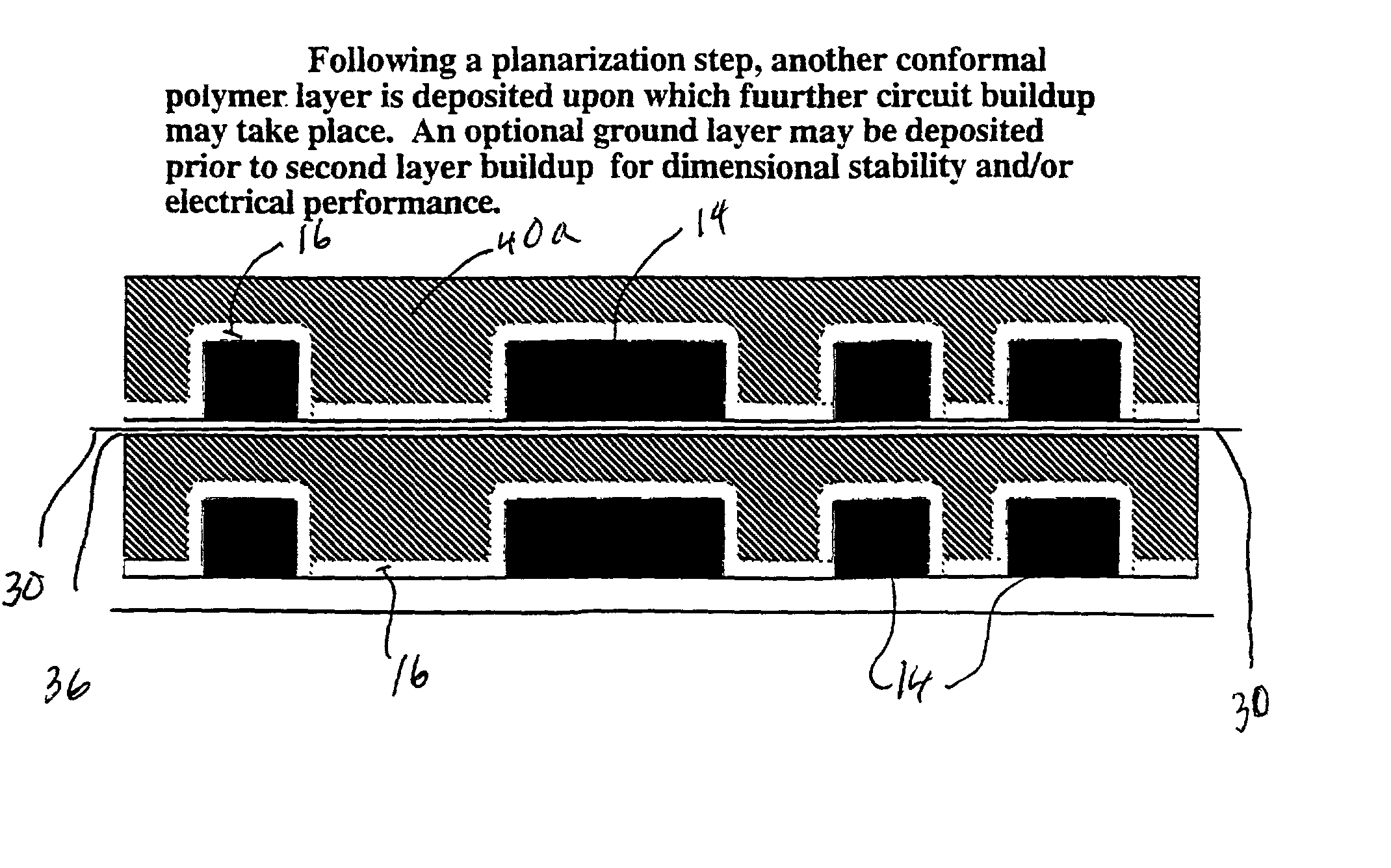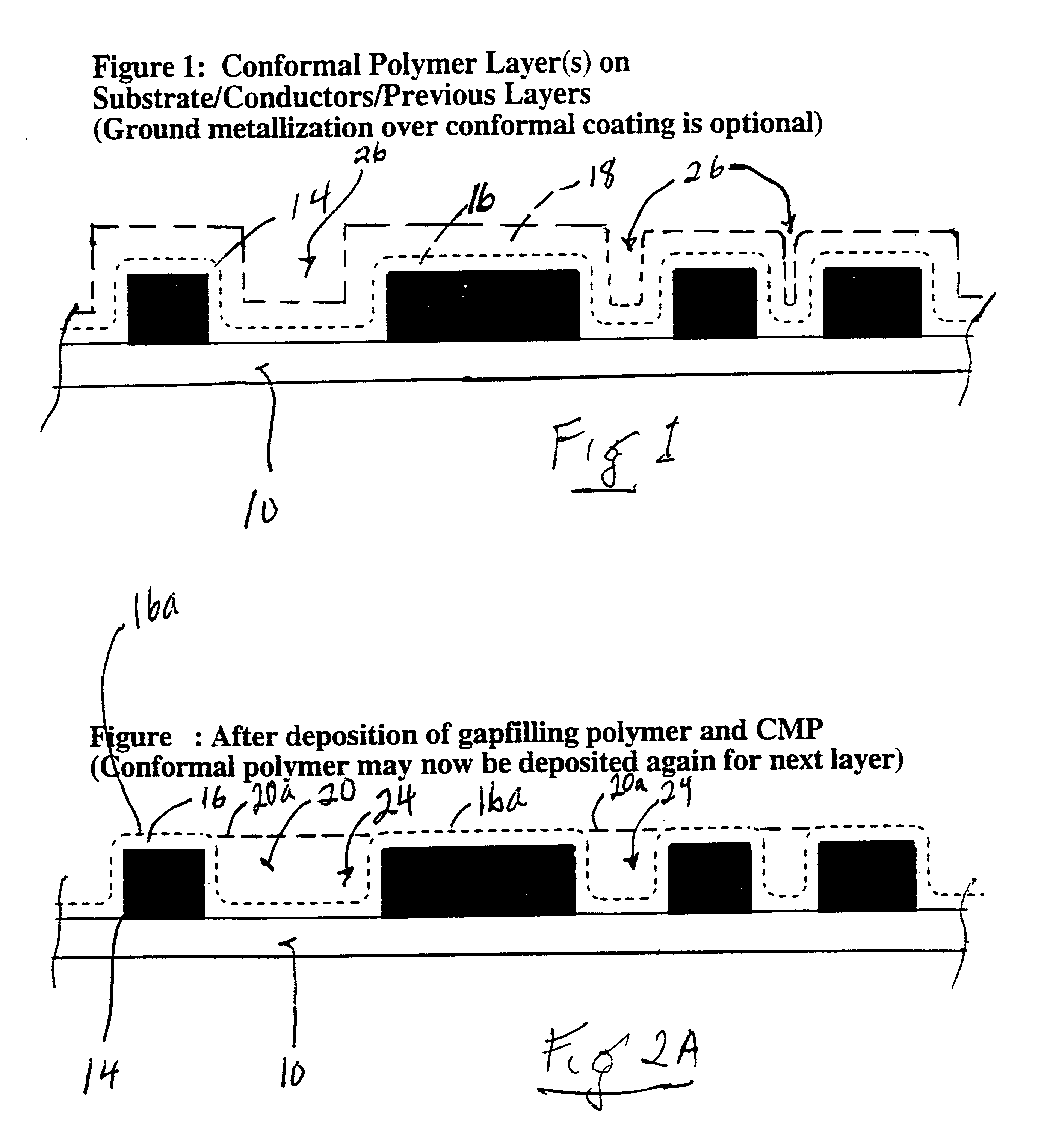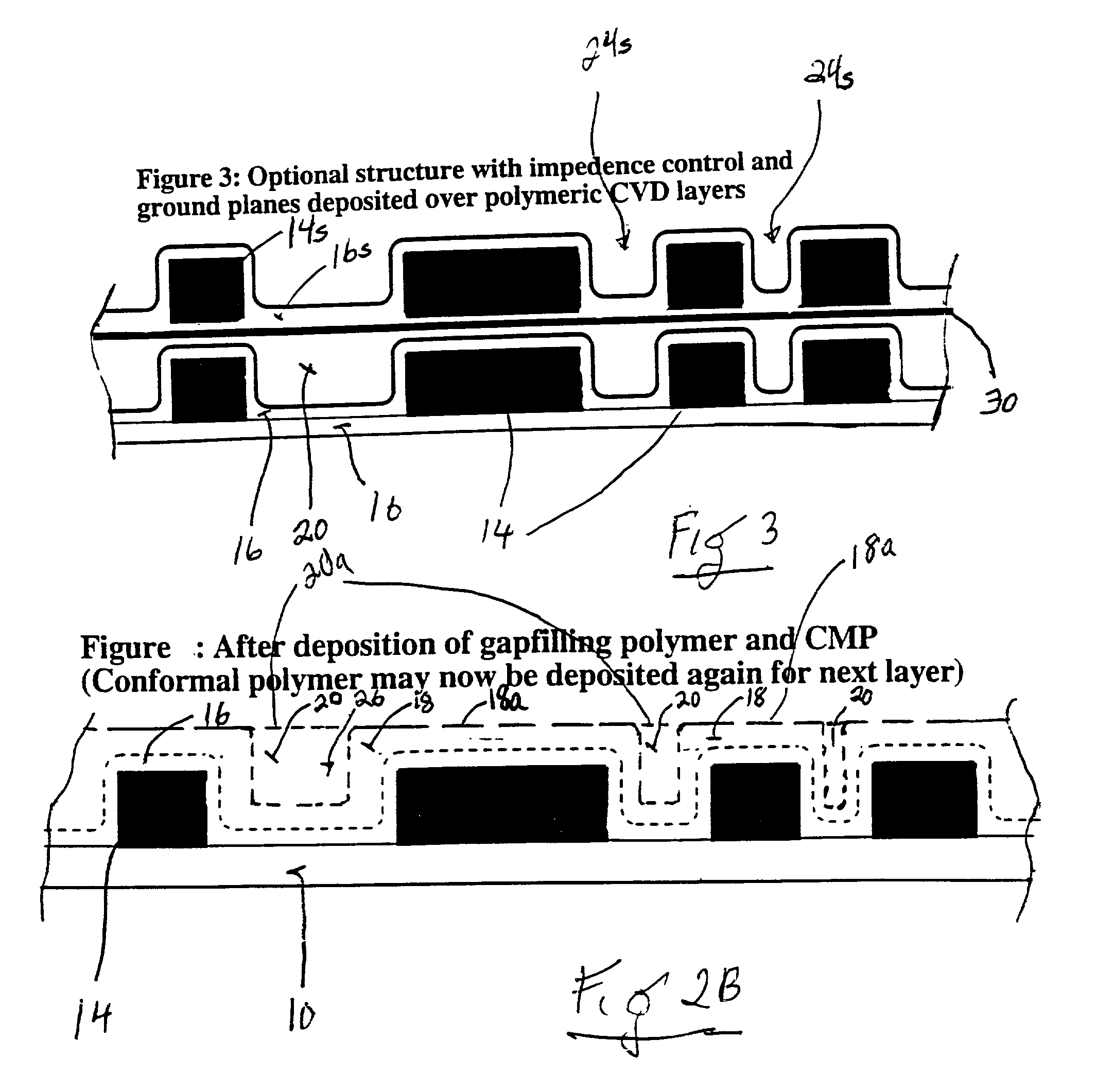Multi-chip module and method for forming and method for deplating defective capacitors
a technology of defective capacitors and chip capacitors, applied in the field of multi-chip modules, can solve the problems of increasing the signal run length, consuming valuable area, and reducing the effect of surface mount and chip capacitors to marginal and unacceptable levels
- Summary
- Abstract
- Description
- Claims
- Application Information
AI Technical Summary
Problems solved by technology
Method used
Image
Examples
Embodiment Construction
[0104] Referring in detail now to the drawings, there is seen in FIGS. 1-22 various embodiments of a structure and method for making a low dielectric constant MCM. Structures and methods of the type illustrated in FIGS. 1-22 are of priority of future generation MCM's as they will enable gigahertz speed products without huge losses, noise, and delays. The advantages of a low dielectric constant MCM of the various embodiments of the present invention are: (1) higher performance MCMs may be made with lower dielectric constants; (2) reduces amount of chemical mechanical polishing (CMP) required by using only conformal dielectric coatings in the MCMs; (3) enables better dielectric-layer adhesion than possible with only one type of dielectric polymer because of using two or more dielectric polymers; and (4) enables controlled impedance structures. A dielectric constant is a value serving as an index of the ability of the dielectric material(s) (e.g., polymers) to resist the transmission o...
PUM
| Property | Measurement | Unit |
|---|---|---|
| dielectric constant | aaaaa | aaaaa |
| dielectric constant | aaaaa | aaaaa |
| dielectric constant | aaaaa | aaaaa |
Abstract
Description
Claims
Application Information
 Login to View More
Login to View More - R&D
- Intellectual Property
- Life Sciences
- Materials
- Tech Scout
- Unparalleled Data Quality
- Higher Quality Content
- 60% Fewer Hallucinations
Browse by: Latest US Patents, China's latest patents, Technical Efficacy Thesaurus, Application Domain, Technology Topic, Popular Technical Reports.
© 2025 PatSnap. All rights reserved.Legal|Privacy policy|Modern Slavery Act Transparency Statement|Sitemap|About US| Contact US: help@patsnap.com



